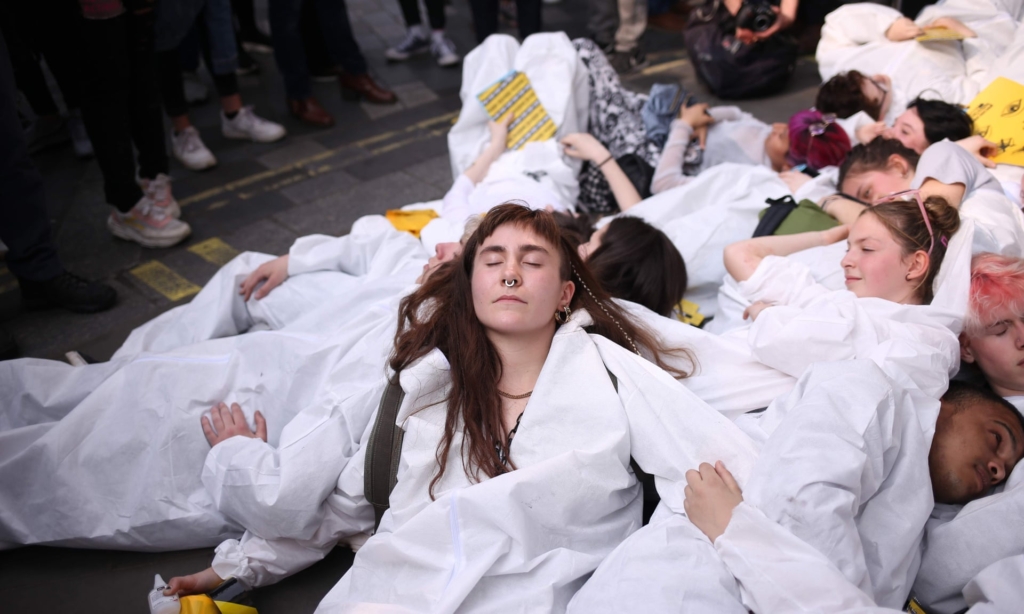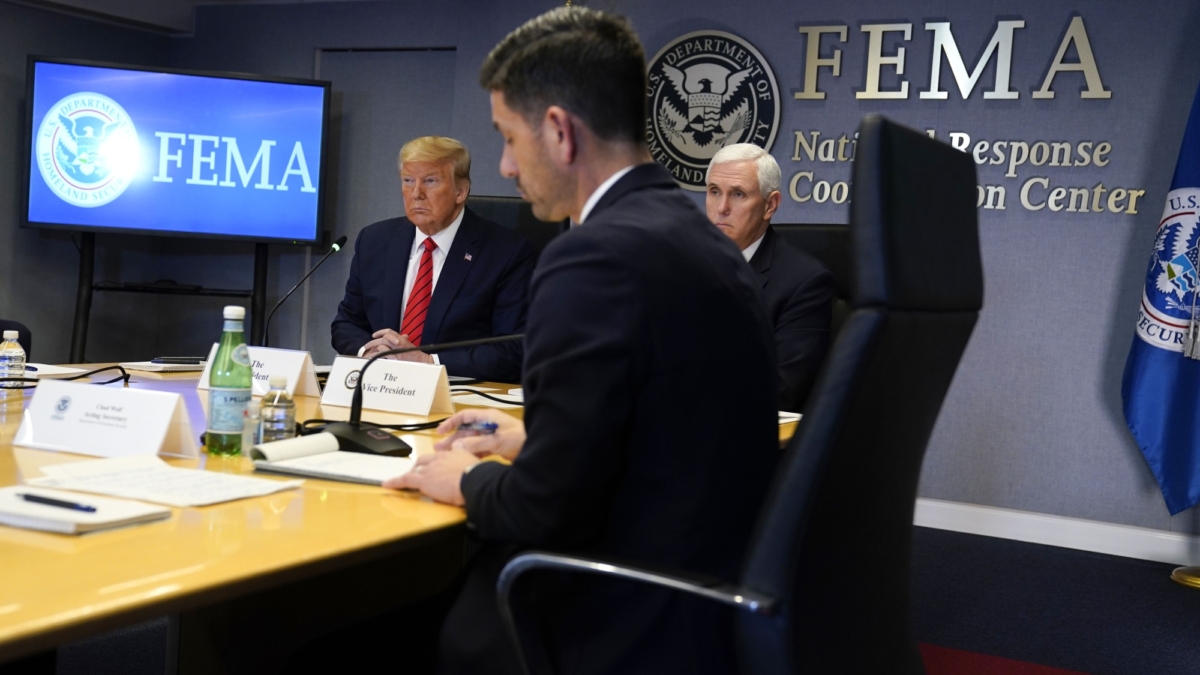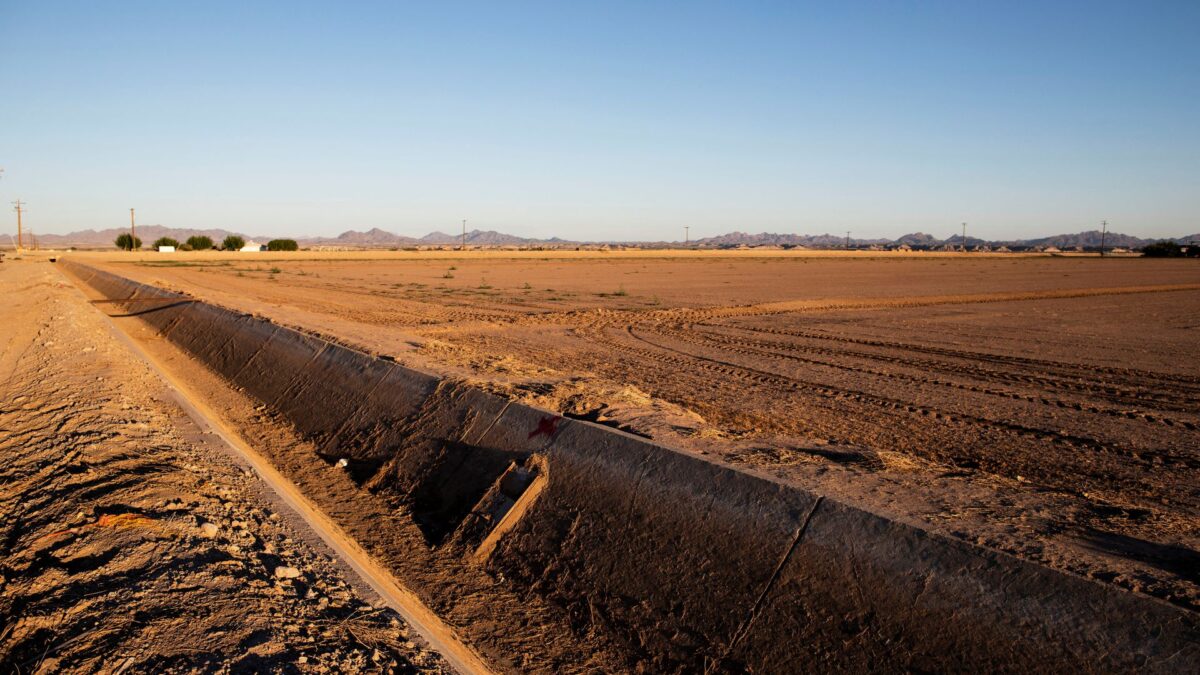UK police seek tougher powers against Extinction Rebellion – Clampdown on climate protests sets “disturbing precedent”, says UN rights expert
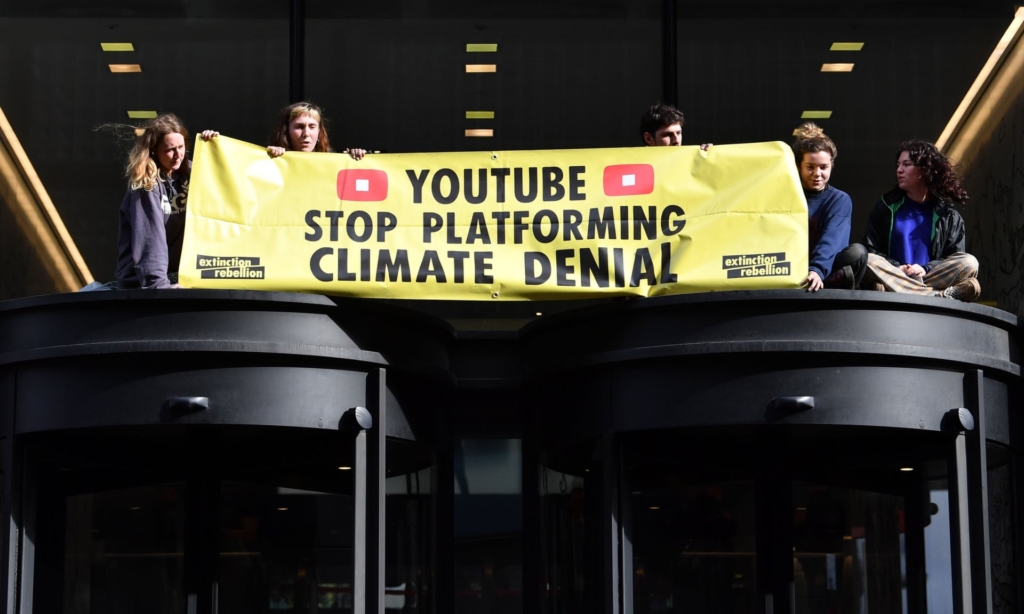
By Vikram Dodd, Matthew Taylor, Damien Gayle, and Jessica Murray
19 October 2019
(The Guardian) – Government and police have held talks to strengthen public order laws to allow a tougher crackdown on future Extinction Rebellion (XR) climate demonstrations in what civil rights lawyers warn would be a “a shocking assault on the right to protest.”
The move, which comes as XR’s two-week “uprising” drew to a close on Friday, follows widespread criticism of the Metropolitan police after officers implemented a city wide ban on the protests earlier this week.
Talks have been ongoing for months between police chiefs and the Home Office with changes to specific sections of the 1986 Public Order Act being discussed.
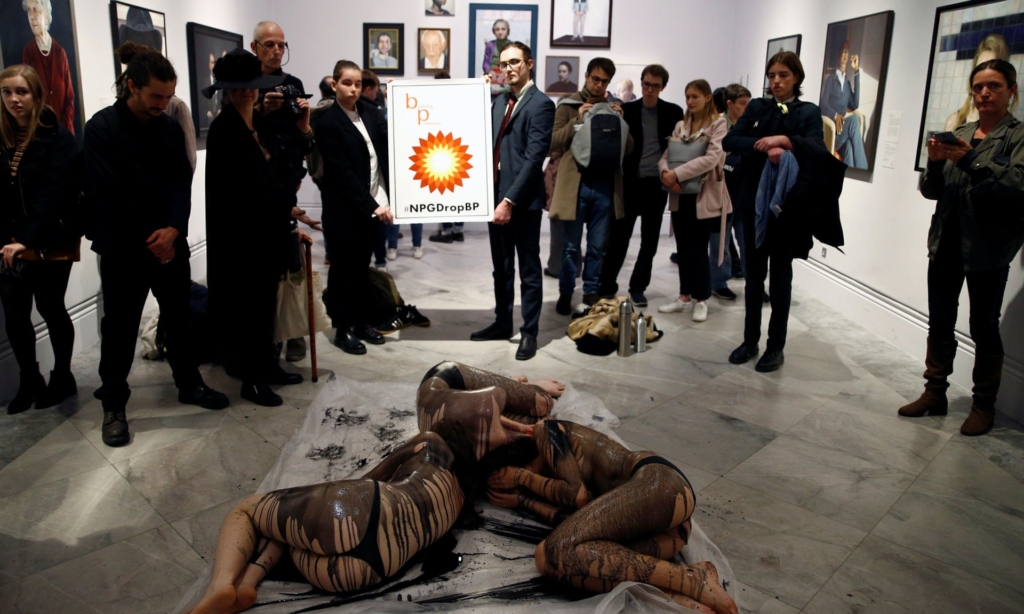
The officer in charge of policing the demonstrations, deputy assistant commissioner Laurence Taylor, said: “We have been engaged with the Home Office around a number of asks in relation to the legislation. This work is at an early stage, but includes looking at what constitutes serious disruption, and how Sections 12 and 14 of the Public Order Act may be more aligned. This will require further engagement with the Home Office and NPCC [national police chiefs council] Public Order Lead.”
One senior police source said changes could include lowering the threshold at which police can place restrictions. Such a change would mean that the prospect of “disruption” is enough to impose tough conditions, not “serious disruption” as the public order act currently states.
The source said government wanted to see more robust and proactive action from police: “They want ‘move forward’ tactics and to see the police are doing something and clearing the streets. Government wants police to be more robust earlier and more often.”
What is unfortunate is that we’re living through a global climate emergency – that is clear from the scientific evidence – and instead of responding with appropriate urgency to tackle the causes … governments are putting their efforts into tackling protesters instead.
David R. Boyd, U.N. special rapporteur on human rights and the environment
But civil rights lawyer Jules Carey, who is representing XR protesters, denounced any attempt to secure new powers for the police.
“The spectre of the government now giving itself the power to prohibit all protests across the city would amount to a shocking assault on the right to protest,” said Carey.
“It would be in breach of the UK’s obligations to uphold and protect the right to protest under international law and would set an appalling precedent that would be cheerily welcomed by authoritarian states throughout the world.”
The attempt to introduce new police powers came as the Met said more than 1,700 people had been arrested for taking part in the XR protests.
Thousands of people have blocked roads, glued themselves to government buildings and blockaded big financial institutions to raise the alarm about the escalating climate emergency. One group targeted London’s underground network.
Organisers say that a record number of people – up to 30,000 – took part over the two weeks. And data analysts within the group are already looking at which actions were most successful at sparking public support or resulted in new members signing up.
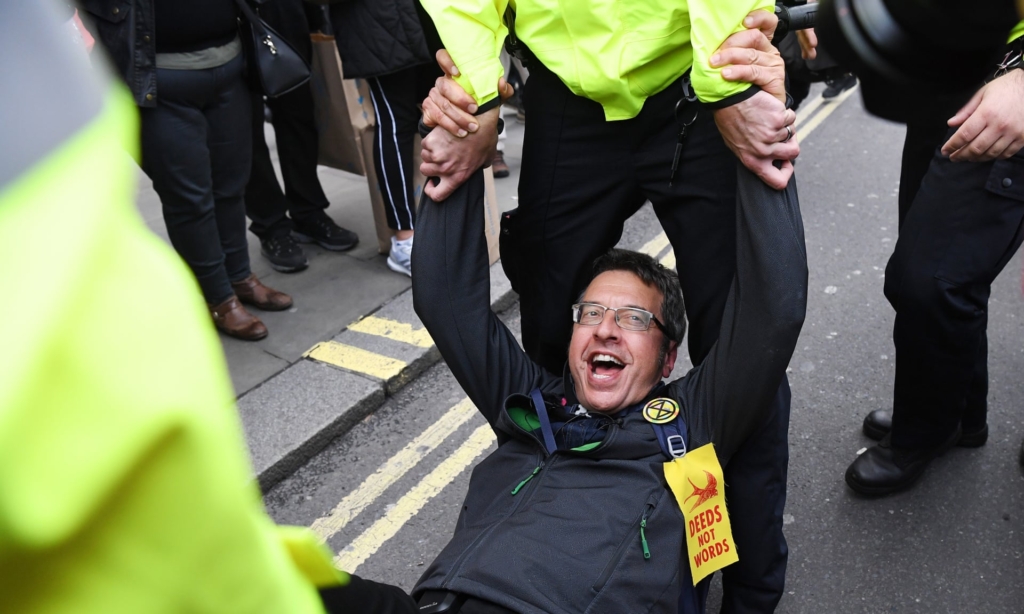
But key figures within XR acknowledged there are serious challenges facing the movement as it reflects on the last two weeks.
There have been fears raised that the recent activism did not cut through in the same way it had in April – as environmental civil disobedience and mass arrests “became normalised.”
That changed on Monday evening when police imposed a blanket ban on XR protests across the capital. That proved a boost for those on the streets with support from civil liberties groups and politicians who branded the move “chilling and unlawful”. [more]
Police seek tougher powers against Extinction Rebellion
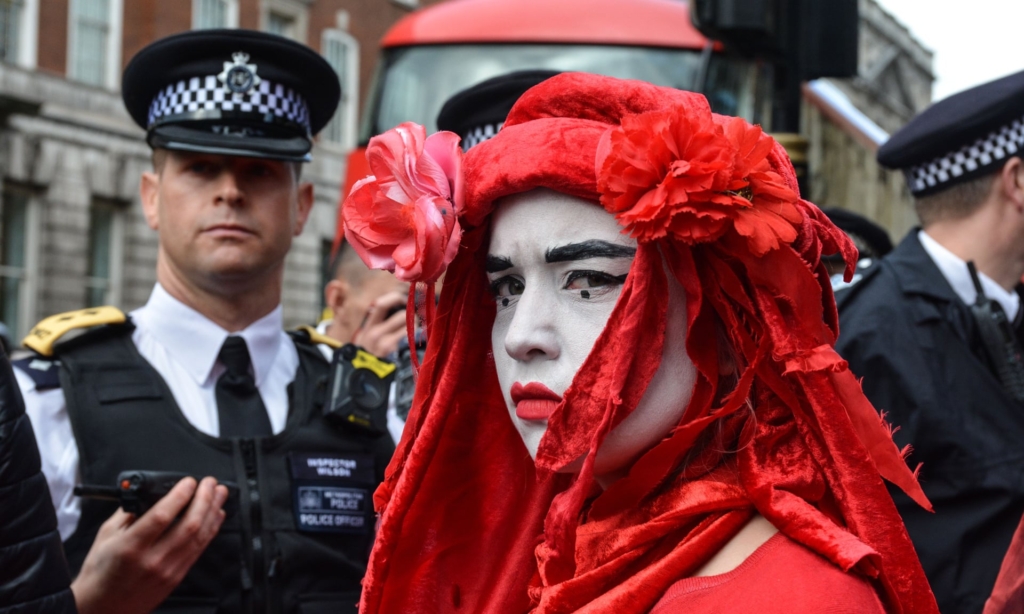
UK clampdown on climate protests sets “disturbing precedent” – UN rights expert
By Megan Rowling
17 October 2019
BARCELONA (Thomson Reuters Foundation) – Britain’s response to escalating climate protests on London’s streets this month, with mass arrests and tighter restrictions, is consistent with a “global pattern of suppression” of environmental activists, said a U.N. human rights expert.
Those who oppose environmentally damaging projects such as coal plants or mines face worse challenges in other parts of the world like Latin America and Southeast Asia, where they suffer violence, harassment, and intimidation, said David R. Boyd, the U.N. special rapporteur on human rights and the environment.
But London police moves to dismantle protest camps set up by the Extinction Rebellion group and prevent its members gathering “is a disturbing precedent that other governments will utilize to their advantage”, Boyd told the Thomson Reuters Foundation.
Police on Monday ordered that any “assembly” linked to the two-week Extinction Rebellion “Autumn Uprising” should cease.
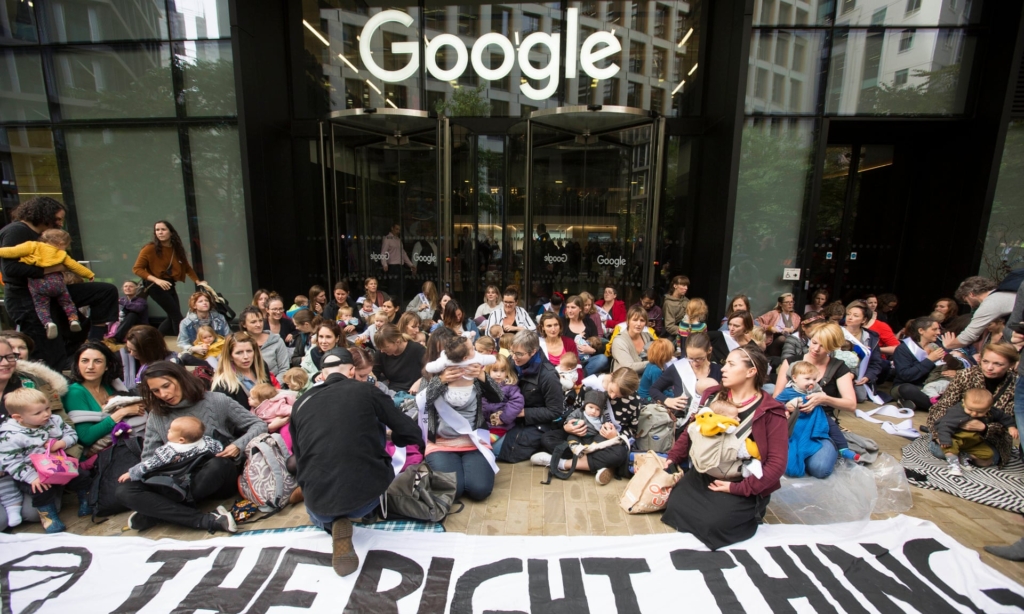
Activists petitioned for a swift judicial review, but were told on Thursday a High Court hearing would be held on the case on 24 October 2019, after the protests are scheduled to end.
“While we are disappointed that the court is not able to hear the application sooner – particularly given the immediate risk of people being unlawfully arrested for peaceful, non-violent protest – we nonetheless look forward to putting forward our arguments next week,” Extinction Rebellion’s legal team said in a statement. […]
More than 1,710 people have now been arrested since the protests began on 7 October 2019, police said.
Boyd said rights to freedom of expression and association were clearly enshrined in the UK Human Rights Act, and were being curtailed under the current policing approach.
The authorities can step in “if public safety is jeopardized, if there is disorder or crime happening”, he noted.
But the Extinction Rebellion protests seemed to have been non-violent and carefully planned, he added.
“What is unfortunate is that we’re living through a global climate emergency – that is clear from the scientific evidence – and instead of responding with appropriate urgency to tackle the causes… governments are putting their efforts into tackling protesters instead,” Boyd said in an interview.
On Thursday, the 14-member International Network of Civil Liberties Organizations expressed concern that the London protest prohibition “is disproportionate and constitutes a serious interference with the right to protest”, and called for it to be reversed. [more]
UK clampdown on climate protests sets ‘disturbing precedent’ – UN rights expert
